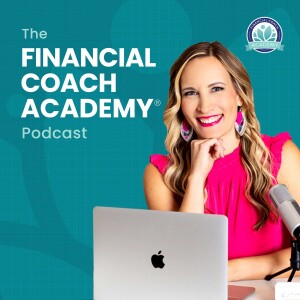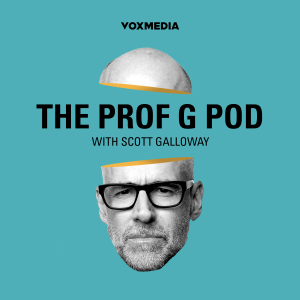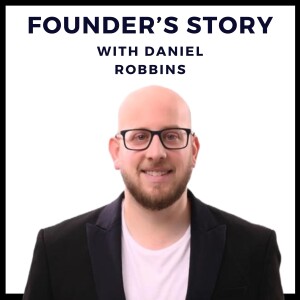

The Financial Coach Academy® Podcast
https://feeds.buzzsprout.com/2061608.rssEpisode List

119. Growing Your Financial Coaching Business Without Breaking the Bank
You want to grow your financial coaching business but you're not quite ready to make a big investment. Maybe you're just getting started, or you're building momentum but hesitant about spending thousands of dollars on training programs.This week, we’re tackling one of the most common questions we get: how can you grow your financial coaching business using resources that are available right now, without waiting until you feel perfectly prepared or have the budget for a mastermind or program?We’re firm believers in lifelong learning and know there is an incredible library of free and low-cost resources available online (this podcast included). But first, we need to address the mindset piece that's absolutely foundational to your growth. Many coaches get stuck thinking they need to know everything before they can help anyone, and that's simply not true. You likely know more than you realize about personal finance, and you've already overcome challenges that your future clients are still facing.The reality is that growth as a coach happens through a combination of learning and doing, not just one or the other.We explore the shift from consumption to implementation. The most successful coaches are the ones who take one idea, implement it fully, measure the results, and then move on to the next thing. They don't learn endlessly without taking action, and they don't wait until they feel completely ready.Throughout the episode, we walk through specific free and low-cost resources that can help you grow right where you are. From podcasts and training materials to community groups and industry connections, there are tools available to support your journey at every stage.We also cover how to combine these various resources into a personalized growth plan that actually works for your life and business. The key isn't which specific resources you choose, but your commitment to applying what you learn consistently over time.By the end of this episode, you'll have a clear roadmap of next steps, regardless of where you are in your journey, plus practical examples of how other coaches have used these resources to solve specific challenges in their businesses.Links & Resources:Ultimate Growth GuideJoin the Facebook groupEpisode 85Episode 72Episode 88Episode 106Episode 105Episode 93Episode 66 Key Takeaways:Growth happens through learning and doing simultaneously, not waiting until you feel perfectly prepared.Ask yourself this: What you're really seeking is certainty, and you only get that by helping someone and seeing results.Move from consumption to implementation by taking one idea and fully implementing it before moving on.Focus here: Strengthen your weakest link instead of trying to learn everything at once.The real marketing secret: Your clients’ experience and results drive referrals better than any strategy.You can make incredible progress in six months through focus and consistency, even if you don't notice it weekly.

118. Why AI Makes Financial Coaches More Essential, Not Obsolete
There's something happening in the financial coaching world that's got a lot of us feeling uneasy. Maybe you've heard the whispers, or maybe you've been losing sleep over it yourself. AI is coming for our jobs, they say. Clients can just ask ChatGPT for financial advice now. Why would they need us?I've been watching this conversation unfold in coaching groups and on Reddit, and I've got to tell you—the fear is real, but it's also missing the point entirely. Because here's what I've learned from working with coaches who are already experimenting with AI, and from my own experience using these tools: the question isn't whether AI will replace us. It's how we're going to use it to become even better at what we already do.Think about the last time a client came to you. Did they need someone to crunch numbers? Or did they need someone who could see the hesitation in their voice when they talked about starting that business? Someone who noticed their body language shift when debt came up? Someone who understood that their financial decisions weren't really about money at all, but about the stories they've been telling themselves for years?That's the thing about transformation. It's messy in a way that AI simply can't navigate. And transformation is what we're really in the business of, isn't it?I've had clients try AI tools for financial guidance, only to come back because they missed something they couldn't quite name. They missed the relationship. They missed being truly seen and understood. And they missed having someone who cared about their success in a way that went beyond just giving them the right answer.And while AI can't replace what we do, it can absolutely make us better at doing it. I've been experimenting with ways to use AI as my behind-the-scenes assistant, handling some administrative stuff that drains my energy so I can focus on the human work that only I can do. And the results have been pretty remarkable.This week, I’m sharing more about this timely topic and why AI isn’t going to replace you. Instead, I want you to understand exactly what makes you irreplaceable so you can use technology to lean into those strengths even more.Links & Resources:Ultimate Growth GuideJoin the Facebook groupKey Takeaways:AI can analyze numbers, but it can't feel the pit in your stomach from buyer's remorse or recognize the fear behind someone's excitement about starting a business. THIS is what makes you irreplaceable.Use AI to handle the mechanical tasks so you can spend more time on the meaningful work that transforms lives.What is rare becomes priceless. As technology advances, human connection becomes increasingly valuable, not less.Your clients need more than information. They need someone who notices their body language when discussing money topics and hears the hesitation in their voice.Pick one repetitive task that doesn't require your unique expertise and experiment with AI handling it this week.Be upfront with clients about how you use AI in your business. This builds trust and shows them where technology ends and your human expertise begins.Double down on your humanity. The coaches thriving with AI aren't replacing their human touch. Rather, they're using technology to create more space for deeper, more personal client interactions.

117. From Content Creator to Coach: How Clear Invitations Transform Your Business
You can create the most beautiful, helpful content in the world, but if you're not inviting people to work with you, you're an educator, not a business owner.Walli Miller learned this the hard way. She was doing everything “right” as a content creator. Her posts were gorgeous, her financial tips were solid, people were commenting and sharing her stuff. But months went by after her first client, and crickets.The missing piece wasn't better content or a perfect Instagram strategy. It was something way simpler and way scarier: she wasn't actually inviting people to work with her.Walli started her blog anonymously because she was frustrated that no one in her circle was talking about building wealth beyond just staying out of debt. As a first-generation college graduate from an immigrant family, she knew there weren't enough voices sharing that perspective.At FinCon, she learned she could make money from her content. But even after getting her first paying client, she kept creating the same educational content for months without getting another one.The breakthrough came when she realized she was treating content creation like teaching, not coaching. She was giving people tips but never painting a picture of what was possible for them personally. More importantly, she wasn't making it easy for people to take the next step.Walli had to shift her whole relationship with sales. At first, “salesy” felt like that pushy car dealer vibe. Now she sees sales as service. She's helping people make a down payment on their financial breakthrough.She realized her clients weren't struggling with the math. They needed someone to help them believe their finances could actually look different. That's when everything changed for her approach to content and conversations with potential clients.Listen in to this week’s conversation to hear Walli’s whole evolution story.Links & Resources:Ultimate Growth GuideJoin the Facebook groupFinCon (Use code KELSA50 for $50 off any FC25 pass)Follow Walli on InstagramFinancially Thriving Money CoachingThe Elite Coaching ProgramKey Takeaways:If you're not inviting people to work with you, you're an educator, not a business owner. Even the most beautiful, helpful content won't translate to clients without clear calls to action.Coaching starts before the coaching relationship begins. Help people believe change is possible and visualize what working with you looks like—don't assume they know how to take the next step.Sales isn't pushy. It's helping people make a down payment on their breakthrough. When you shift from seeing sales as manipulation to seeing it as service, everything changes.Your clients aren't struggling with information—they're struggling with belief. Stop throwing more tips into the world and start showing people what's actually possible for them.“What price are you willing to pay for someone else's breakthrough?” Sometimes that price is sitting in the discomfort of being visible, making offers, and putting yourself out there.People need to see themselves in your story to believe your results are possible for them. Sharing your background and journey isn't bragging—it's giving others permission to dream bigger.

116. When Support Systems Shape Financial Success
Brian Haney has watched it happen more times than he can count. A client comes to him with what looks like a straightforward financial situation, but six months later, they're calling his office feeling completely overwhelmed. Not because the plan was wrong, but because something fundamental was missing.In Brian's case, one example was a recently retired client who had plenty of money and a solid income plan. She should have been celebrating, but instead she was paralyzed. The issue wasn't her portfolio or her budget—it was that she'd never actually managed her own spending before. Her late husband had handled it, then her kids stepped in to help. Now she was on her own and terrified to spend a dime of her own money.This conversation digs into what happened next and why it changed how Brian thinks about partnerships in financial services. We talk about the moment he realized he wasn't the right person to help her with this specific challenge, and what it felt like to tell a client she needed to work with someone else.Brian shares his perspective on why some advisors still operate in silos while others actively build their bench of trusted professionals. He explains what makes a coach outreach actually worth his time versus the messages that get ignored, and why he thinks the future of financial services looks more like a law firm than the current model.And we explore his four financial concern areas framework and why he believes most people in the financial industry suffer from the same training gap. Plus, you'll hear about the million-dollar-earning surgeon who couldn't get approved for a loan and what that taught Brian about the difference between earning money and handling it.If you've been thinking about reaching out to build partnerships with others in the financial industry but aren't sure how to start, or if you're curious about what collaboration actually looks like when it's working well, this conversation gives you a behind-the-scenes look at how these relationships really develop.Links & Resources:Ultimate Growth GuideJoin the Facebook groupBrian HaneyFinancial Guy PodcastKey Takeaways:“I'm not the person to help you with that, or at least I'm not the best person to help you with that.” Learning to say this to clients isn't a weakness, it's the foundation of excellent service.Stop trying to be the expert in everything. Just like law firms have specialists, financial practices work better when you master your lane and partner for everything else.The million-dollar surgeon with terrible credit proves this truth: It doesn't matter how much money you make if you don't know how to handle it.When reaching out to potential partners, lead with curiosity, not your pitch. “I'm really interested in understanding what a day in your life is all about” beats any sales script.Blue ocean thinking: There are plenty of fish in the sea for all of us. Focus on adding value to the marketplace instead of competing for the same clients.Your clients should use you as a resource to find other professionals. When they call asking for referrals to specialists you don't know, that's a sign you're doing partnership right.Four financial domains everyone needs help with: daily money management, major purchases, planning for the future, and planning for the unexpected. No single professional can master all four—and they shouldn't try.

115. Should You Coach Friends and Family? The Truth About Mixing Business with Personal Relationships
When you're starting your coaching business, your friends and family feel like the obvious first clients. They already trust you, they want to support your new venture, and honestly, it feels way less scary than reaching out to complete strangers.But what happens when your sister stops sharing her real spending habits because she doesn't want you judging her credit card debt at Thanksgiving dinner? Or when your best friend expects free advice every time you grab coffee together?The thing is, financial coaching requires complete honesty and vulnerability. With strangers, there's less at stake emotionally. But when it's your college roommate or your cousin, suddenly they're holding back information because they don't want to change how you see them at family gatherings.And then there's the flip side: you might find yourself going easier on them because you don't want to create tension in your friendship. You avoid the hard conversations about their shopping habits because you're worried about protecting the relationship, which impacts your ability to be an effective coach.In this episode, I'm sharing the real pros and cons of coaching friends and family, including practical strategies if you do decide to work with your inner circle. But the bigger question is this: Is this actually sustainable for building the business you really want?If you've been wondering whether you should coach the people closest to you, or if you're already doing it and feeling stuck, this episode will help you make intentional decisions about your business that honor both your relationships and your professional goals.Links & Resources:Ultimate Growth GuideJoin the Facebook groupKey Takeaways:Your inner circle might trust you, but that doesn't mean they'll tell you the whole truth about their finances.The problem with coaching friends: You may go easier on them to protect the relationship, which means they don't get the coaching they actually need.Question to ask yourself: Am I building a business or just helping people I already know?If you coach friends and family, treat them more professionally than your regular clients, not less.Your personal network has an expiration date as a client source—eventually you'll need to look beyond people who already know you.The most successful coaches use friends and family as practice, not as their business model.Here's how to keep the relationship with friends and family: Let them refer people to you instead of becoming clients themselves.
Create Your Podcast In Minutes
- Full-featured podcast site
- Unlimited storage and bandwidth
- Comprehensive podcast stats
- Distribute to Apple Podcasts, Spotify, and more
- Make money with your podcast











